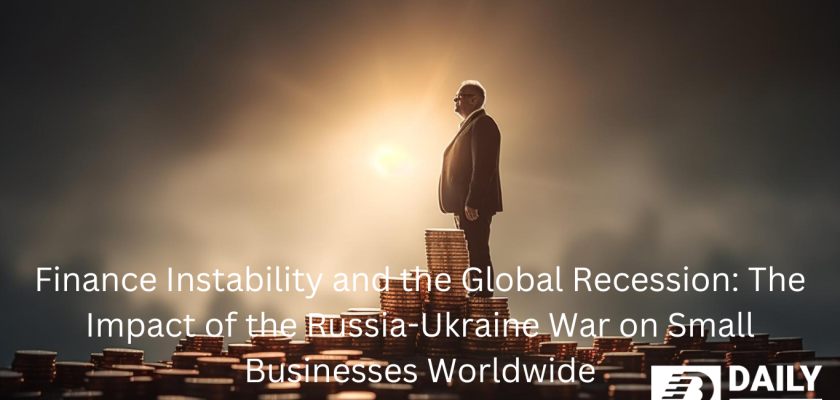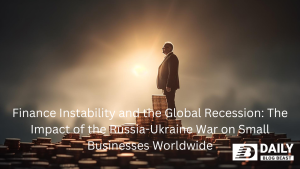Introduction:
The Russia-Ukraine war, which began in 2022, has had far-reaching consequences beyond the realm of geopolitics. One of the most significant effects has been the heightened finance instability and the subsequent global recession. As the conflict escalated, it created a ripple effect that swallowed small businesses across the world. In this article, we will delve into the reasons behind this instability and examine the impact it has had on the global economy.
Trade Disruptions and Supply Chain Breakdowns:
The Russia-Ukraine war resulted in severe disruptions to global trade and supply chains. Both Russia and Ukraine are major players in international trade, and their conflict caused supply chain breakdowns, delays, and disruptions in various industries. Small businesses, which heavily rely on efficient and timely supply chains, found themselves struggling to source materials, meet customer demands, and maintain profitability. The resulting increase in costs and operational challenges pushed many small businesses to the brink of closure.
Market Uncertainty and Investor Confidence:
During times of war and geopolitical instability, financial markets experience heightened uncertainty. Investor confidence wavers, leading to increased market volatility and risk aversion. As news of the conflict spread, stock markets tumbled, and investors shifted their focus to safer investments, causing capital flight from riskier emerging markets. Small businesses, especially those reliant on external funding, faced difficulties accessing capital and attracting investors, exacerbating their financial instability.
Currency Depreciation and Inflation:
The Russia-Ukraine war impacted currency values and led to the depreciation of local currencies. As tensions escalated, investors lost confidence in the affected nations’ economies, leading to capital outflows. In response, central banks devalued their currencies, which, coupled with the disruptions to global trade, caused inflationary pressures. Small businesses faced higher costs for imported goods and raw materials, further straining their financial viability. The erosion of purchasing power also affected consumer demand, leading to decreased sales for small businesses.
Geopolitical Spillover Effects:
Geopolitical conflicts have a way of permeating international relations and triggering chain reactions. As the Russia-Ukraine war unfolded, tensions heightened between other nations, resulting in diplomatic disputes and trade disputes. The imposition of trade tariffs and barriers further impeded small businesses’ ability to expand their operations internationally and access new markets. Moreover, geopolitical instability and regional conflicts create an atmosphere of uncertainty that deters foreign direct investment, hindering the growth and stability of small businesses worldwide.
Government Response and Policy Challenges:
Governments faced significant challenges in responding to the economic fallout from the war and subsequent recession. Balancing the need to provide support to small businesses while managing their fiscal resources became a delicate task. While some governments implemented stimulus measures, loan programs, and tax breaks, the scale of the crisis often exceeded their capacity to provide adequate assistance. Small businesses, particularly those in developing countries with limited access to financial support, found themselves disproportionately affected by the lack of sufficient government aid.
Conclusion:
The Russia-Ukraine war and the subsequent global recession have cast a long shadow of finance instability over small businesses worldwide. Trade disruptions, supply chain breakdowns, market uncertainty, currency depreciation, inflation, and geopolitical spillover effects have all contributed to the dire circumstances faced by small business owners. As the global economy continues to recover, policymakers and international institutions must prioritize support for small businesses, ensuring their survival and fostering their role as engines of economic growth. Additionally, efforts should be made to foster peace, stability, and diplomatic solutions to prevent similar conflicts from wreaking havoc on the global economy in the future.


